What actually lacks the body, if you want a sweet, fatty, sour, etc.
Taste in physiology is one of the types of chemoreceptions; Sensation arising from the action of various substances predominantly on taste receptors (located on the taste buds of the tongue, as well as the posterior pharynx, soft palate, amygdala, epiglottis). Information from the taste receptors is transmitted along the afferent fibers of the facial, lingopharyngeal and vagal cranial nerves to the nucleus of the single medulla oblongata, then switching occurs in the nuclei of the thalamus and further into the cortex and islet of the cerebral hemispheres, where taste sensations are formed. According to other sources, the cortical end of the gustatory system is located in the parahypocampal gyrus (Latin gyrus parahippocampalis) (the old hooked gyrus, Latin gyrus uncinatus) and in the hippocampus (lat. Hippocampus). In addition to sweet, bitter, sour, salty taste, modern people in different countries also distinguish minds, tart, burning, mint, alkaline, metallic, etc. tastes.
Your body is like a super powerful computer. Watch his testimony very carefully and he will never come. For example, you previously did not have a predilection for a particular dish, and here BAC - you eat bacon  . This is not accidental. This internal computer sends you a message: the body lacks certain trace elements. It's time to take action. Everyone saw how seals eat grass, although they are not herbivorous, so your body will tell you what it lacks. The main thing is to pay attention to it in time and explain it correctly.
. This is not accidental. This internal computer sends you a message: the body lacks certain trace elements. It's time to take action. Everyone saw how seals eat grass, although they are not herbivorous, so your body will tell you what it lacks. The main thing is to pay attention to it in time and explain it correctly.
If you do not like the sweet one, but suddenly pulled on the chocolate, make yourself a diagnosis: a deficiency of magnesium. The same happens if you want something sour. In general, listen more often to your body. You are drawn to something fatter, sizzlingly drinking carbonated drinks - bad with calcium. You will get a balance right away. We ate bread unrestrainedly, and then "fastened" - before there was not enough nitrogen, and now - all type-top.
They used to look longingly at food and felt complete indifference to it (deficit of manganese and vitamins В1, В3), and now they are ready to swallow an elephant (badly with silicon and tyrosine) - everything has its own explanation.
And yet it is better not to wait for signals from the body, but to try to balance your own nutrition, taking into account what and what product is contained. And here's what you should remember:
- Magnesium is chocolate, nuts and fruits.
- Phosphorus is fish, beef, liver and nuts.
- Calcium is cheese, cabbage and mustard.
- Sulfur is egg yolks, cranberries, garlic, horseradish.
- Iron - it's meat, fish, cherries, greens, seaweed, very opportunely will have a mug of cocoa a day.
- Zinc is meat and seafood.
- Vitamin B1 is nuts, beans and liver.
- Vitamin B3 - this is beans, meat and fish halibut.
Another way to recognize what the body lacks is the symptom:
- The heart is not full-potassium - eat fruits and vegetables .
- Scaly skin - problems with iodine - eat seafood, onions and carrots.
- The teeth turn yellow - it's not only the addiction to smoking that is to blame, but also the deficit of some trace elements - eat beans, fish and bananas.
What is missing in the body, if you want ...
- Peanuts (peanut butter) - a lack of B vitamins (found in nuts, beans, meat and fish).
- Bananas - lack of potassium or drink a lot of coffee, hence the lack of potassium (contained in tomatoes, white beans and figs).
- Melons - lack of potassium, calcium, phosphorus, magnesium, as well as vitamins A and C.
- Dried apricots - lack of vitamin A.
- Olives and olives are a lack of sodium salts.
- Milk and fermented milk products - lack of calcium or essential amino acids - tryptophan, lysine and leucine.
- Ice cream - a lack of calcium (a special love for it is experienced by people with impaired metabolism of carbohydrates).
- Seafood - iodine deficiency (use iodized salt).
- Herring - lack of the correct fats.
- Sunflower seeds - a shortage in vitamins-antioxidants (especially often occurs in smokers).
- Butter - lack of vitamin D.
- Cheese is a lack of calcium and phosphorus (found in cottage cheese, milk and broccoli).
- Bread - not enough nitrogen (contained in meat, fish and nuts).
- Chocolate is a lack of magnesium (found in unsweetened nuts and seeds, fruits, legumes and legumes).
I just want something ...
- Sweet - a lack of glucose (found in fruits, berries, honey and sweet vegetables).
- Solenenkogo - lack of chlorides (found in unboiled goat milk, fish, unrefined sea salt).
- Kislenkogo - lack of vitamin C (found in rose hips, lemons, kiwi, cranberries, Brussels sprouts, currants and strawberries).
- Smoked meats - lack of cholesterol (contained in red fish, olives, avocado, nuts).
- Fatty foods - lack of calcium (found in broccoli, legumes and legumes, cheese, sesame).
- Burned food is a shortage of carbohydrates (found in fresh fruits).
- Cold drinks are a shortage of manganese (found in walnuts, almonds, pecans, blueberries).
- Carbonated drinks - lack of calcium (found in broccoli, legumes and legumes, cheese, sesame).
- In the evening, drinking tea with dried pechenyushkami - the day did not get the right carbohydrates (found in meat, fish, legumes and nuts).
- Liquid food - lack of water (drink 8-10 glasses of water a day, with the addition of lemon juice or lime).
- Hard food is a lack of water (the body is so dehydrated that it has already lost the ability to feel thirsty.) Drink 8-10 glasses of water a day).
But if it happened ...
- Zhor on the eve of critical days - a shortage of zinc (found in red meat (especially meat of internal organs), seafood, leafy vegetables, root crops).
- The common unbeatable zhor is the lack of silicon, amino acids tryptophan and tyrosine (found in nuts, seeds, cheese, liver, lamb, sued, spinach, green and red vegetables and fruits).
- Appetite disappeared completely - lack of manganese and vitamins B1 and B2 (contained in walnuts, almonds, nuts, seeds, legumes and pods, meat, fish and poultry).
- I want to smoke - a lack of silicon and amino acid tyrosine (found in nuts, seeds, orange, green and red fruits and vegetables).
- I want to gnaw ice - a lack of iron (found in meat, fish, poultry, sea cabbage, greens, cherries).
- I want paint, plaster, earth, chalk - lack of calcium and vitamin D (found in eggs, butter and fish).
And if you have a passion for food ...
Passion chocolate-sweet
More often than others, "chocolate mania" suffer caffeine fans and those whose brains are particularly in need of glucose. This applies to other sweets. If you eat unbalanced, your body will also feel the need for glucose - as the fastest source of energy. Namely, chocolate is coping with this task perfectly. But keep in mind that this product contains a lot of fat, the excess of which is dangerous for your blood vessels and figure. Eat plenty of vegetables and cereals - they are rich in complex carbohydrates. And as a dessert, choose dried fruits or honey with a small amount of nuts.
Passion for cheese
Spicy, salty, with spices and without ... You can not live without it for a day, its taste drives you crazy - you are ready to absorb it with kilograms (in any case, eat at least 100 grams per day). Nutritionists claim that cheese is adored by those who are in acute need of calcium and phosphorus. Of course, cheese is the richest source of these substances that are so necessary and extremely useful to the body, but fats ... Try to replace the broccoli with cabbage cheese - there is a lot of calcium and phosphorus in it, and there are almost no calories. If your body takes milk well, drink 1-2 glasses a day, and eat a little cheese (not more than 50 g per day) and along with raw vegetables.
Passion sour-lemon
Perhaps, your diet is dominated by difficult-to-digest products, and the body tries to increase the acidity of gastric juice to facilitate its work. With a cold, you too can draw on sour fruits and berries - an excellent source of vitamin C. Choose dishes with a moderate fat content and do not mix a lot of foods in one sitting. Avoid fried, over-salted and overly spicy food, as well as one that has gone through excessive heat treatment. Noticing the problem with digestion (especially from the liver and gallbladder), be sure to be examined by a gastroenterologist.
Passion for smoked
The passion for smoked foods and similar delicacies usually prevails over those who sit on a too strict diet. Long-term restriction in the diet of fat-containing products leads to a decrease in the level of "good" cholesterol in the blood, and in smoked foods, a sufficient amount of saturated fat. Do not get carried away with fat-free food - choose the one in which there is still some fat. For example, buy yogurt, kefir or ryazhenka one- or two-percent fat content. Eat at least a tablespoon of vegetable and a teaspoon of butter a day, even if you are on a strict diet. Scientists have experimentally proven that those who use sufficient amounts of fat lose weight faster.
Food Passions and Diseases
Onions, garlic, spices and condiments. The acute need for these products and spices, as a rule, indicates problems with the respiratory system.
Olives and olives. This predilection is possible in the disorder of the thyroid gland.
Ice cream. Special love for him is experienced by people with metabolic disorders, suffering from hypoglycaemia or people with diabetes.
Bananas. If you lose your head from the smell of ripe bananas, pay attention to the state of your heart.
Sunflower seeds. The desire to gnaw seeds often occurs in those who are badly in need of antioxidant vitamins. This means that in your body a lot of free radicals - the main provocateurs of pre-temporary aging.
Via econet.com & wiki

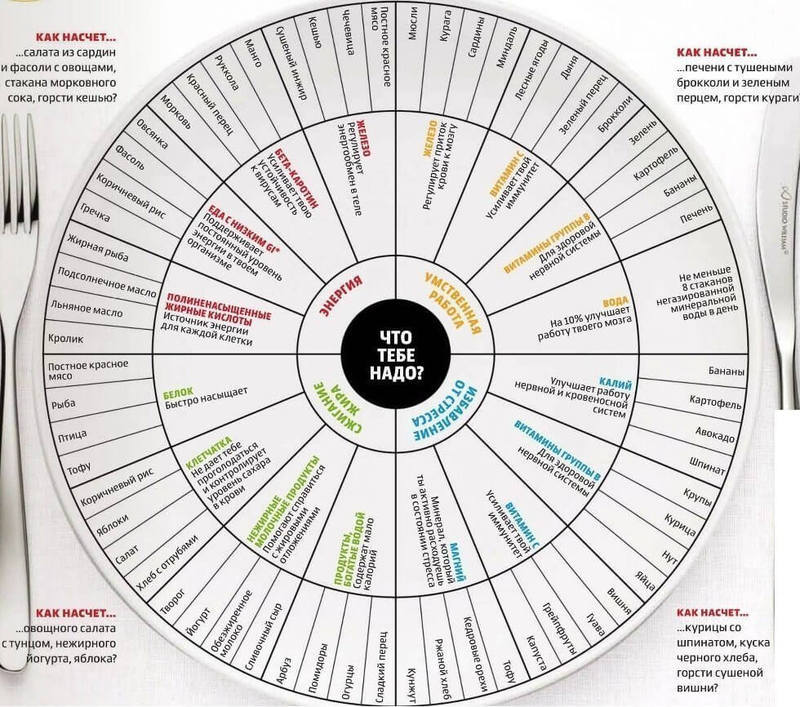
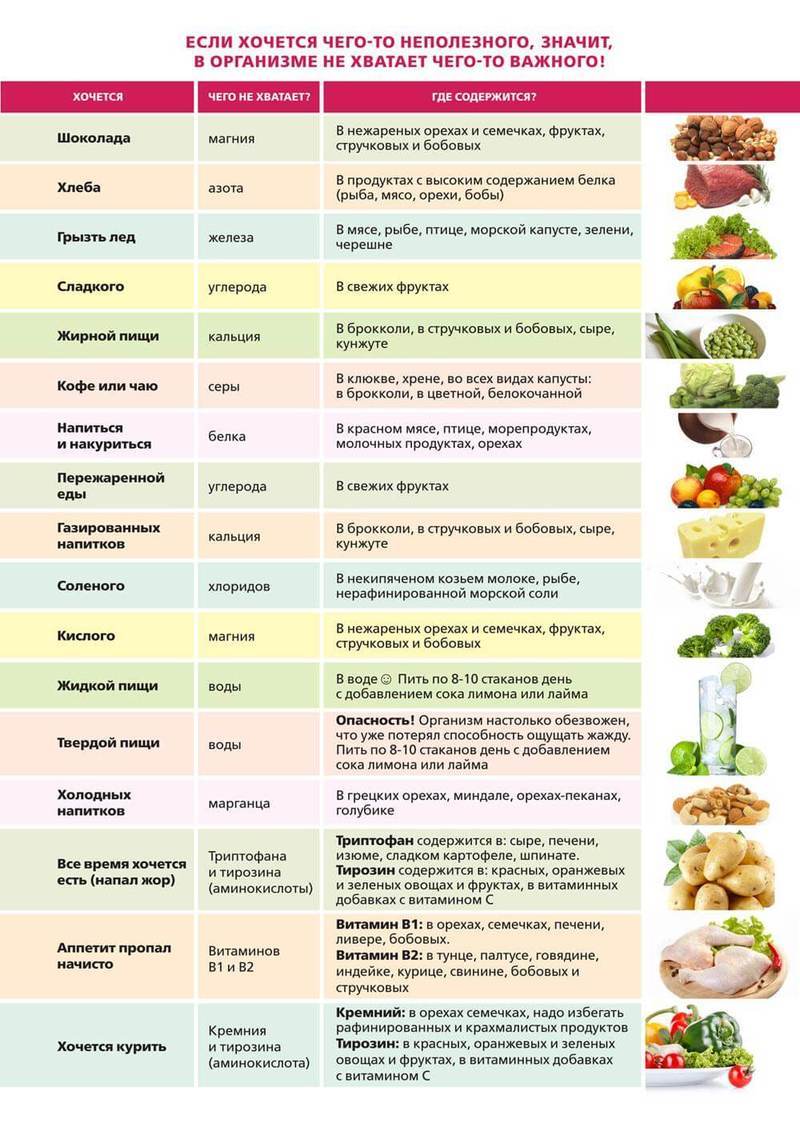
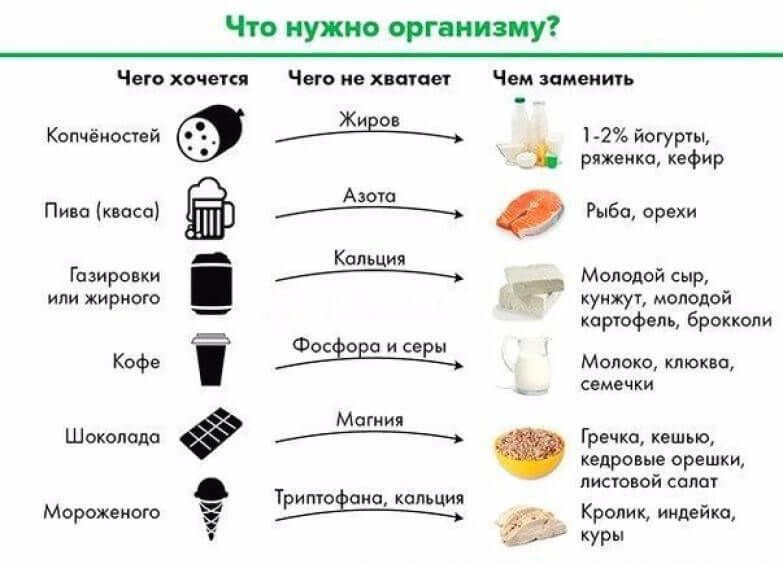
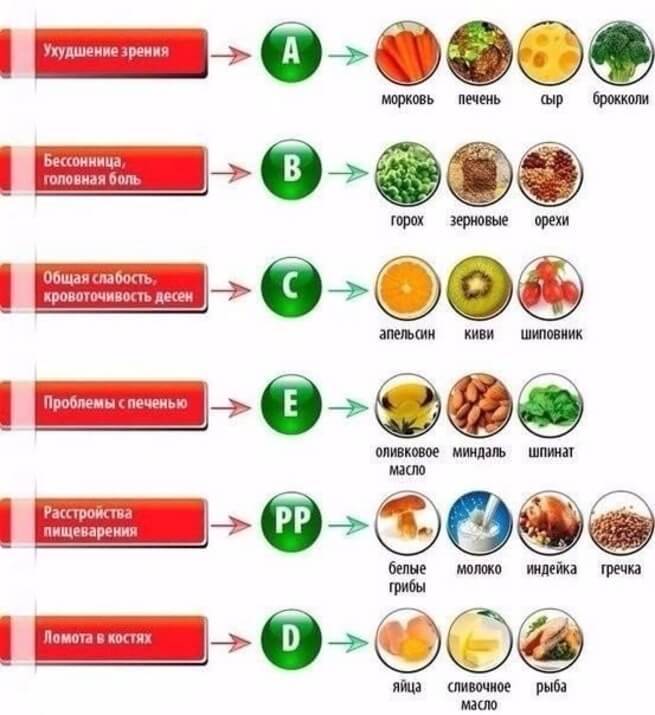
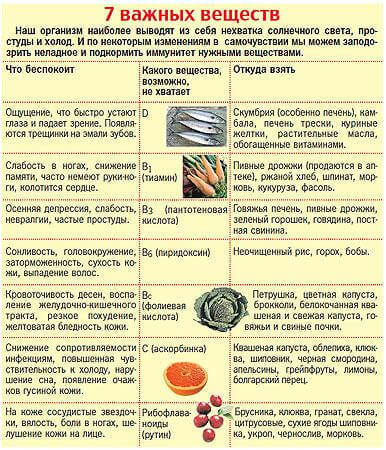

Comments
Commenting on, remember that the content and tone of your message can hurt the feelings of real people, show respect and tolerance to your interlocutors even if you do not share their opinion, your behavior in the conditions of freedom of expression and anonymity provided by the Internet, changes Not only virtual, but also the real world. All comments are hidden from the index, spam is controlled.